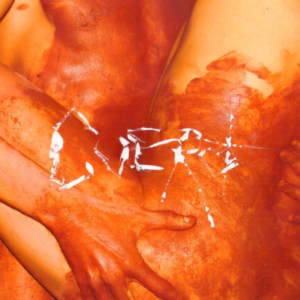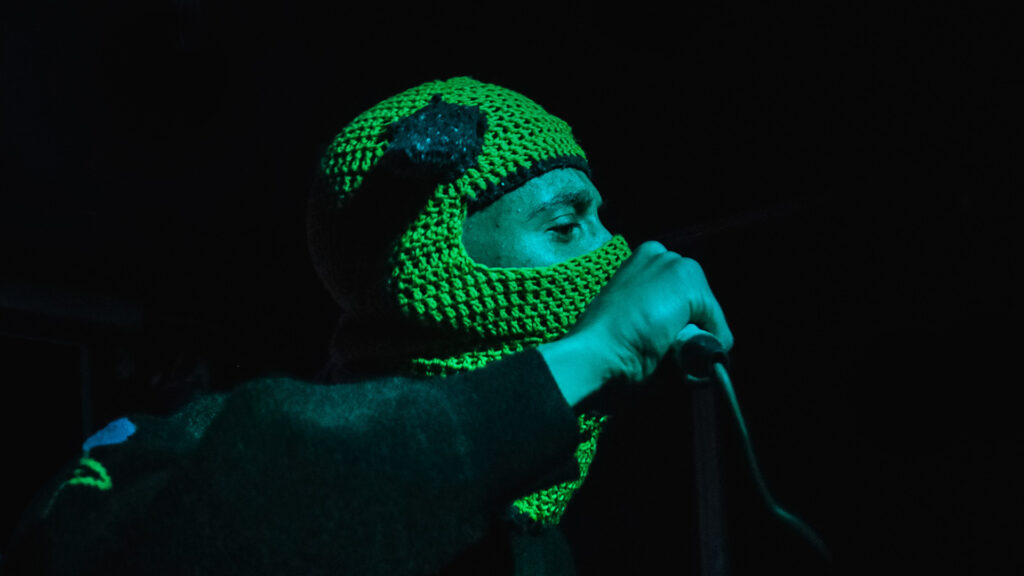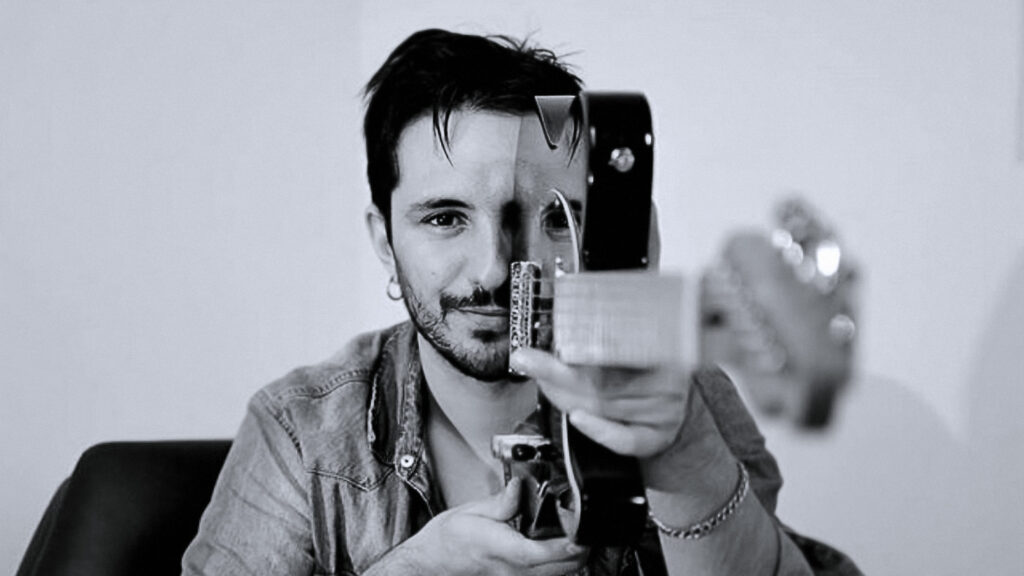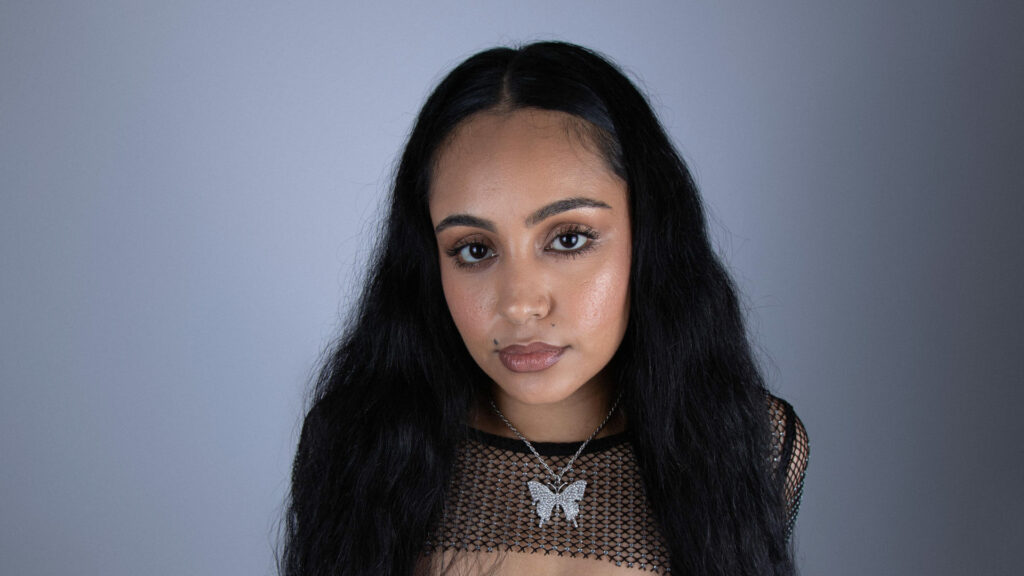A multidisciplinary artist and a true icon. Minerva Malynche Lopez Fuentes, otherwise known as Malynche, has mastered the fundamentals of her sound universe at just 20 years old. Influenced by her experience as a transgender woman living in Mexico – the second most transphobic country in the world, Malynche uses her music to empower her tight-knit community. Weaving between intricate genres such as LatinClub and Techno, Malynche’s stage performances are unlike any other. From emotive body expression to powerful vocal technique, audiences are guaranteed to be taken on a magical journey. With her debut LP ‘Minerva’ coming out this summer, it was only right to sit down and have a chat with the talented songstress.
Your journey as a multidisciplinary artist encompasses various roles, from producer to performer to lyricist. How do you navigate wearing so many hats within your creative process, and which aspect of your artistry do you find most fulfilling?
“I believe that nowadays, being a multidisciplinary artist is truly the norm. My studio, built into my laptop, allows me to travel the city to record my album. The fact I have many possibilities to channel my inspiration through different aspects of art, not only the music part but also creating visual landscapes, imagery, and a concept of my own, is intrinsic to who I am. Ever since I discovered my identity as a transgender woman, I’ve felt the impulse to share myself with the world, to give a message and translate it to art immediately as I feel or live new experiences. I find it fulfilling to finish a song by my means, from composing to mastering – that whole journey is what keeps me motivated to grow personally and professionally.”
Your music spans a diverse range of genres, including LatinClub, Pop, and Hip Hop. How do you blend these different musical influences into a cohesive sound that represents your unique artistic identity?
“I think there is a very important current in art to break gender norms in all of the senses of the word and what it encompasses. Putting in a box what you’re creating is completely limiting and boring. I try to get a mixture of everything – finding inspiration in every genre throughout music history especially Latin sounds and exploring what is going on in the music scene of the city I’m living in. Mexico City is changing every weekend, and you can find different currents of culture anywhere you encounter. Humans are contradictory beings, but I find that fascinating because I live it every day, and I try to always represent that in my sound.”
Your live performances are described as emotional and intense, combining dance, body expression, and vocal technique. How do you prepare for these shows, and what do you hope your audience takes away from the experience?
“I practice my music by entering in its vibe and atmosphere. Living the fantasy, believing the delusion. When there’s a live show I will always find a way to emotionally engage with myself and forget about my normal life as I live it day to day. Being onstage is a complete fantasy! It’s glamour and pain coexisting. It’s having eyes and energetic senses totally focused on what you are doing. With my singing of course I get into it as much as I possibly can, but live music is not only about the music, there’s a performative aspect in what you are singing, playing, dancing, and saying. You are a preacher.”
As a transgender woman in Mexico, you’ve been vocal about your experiences and have used your platform to raise awareness about transphobia and hate crimes. How does your personal journey influence your music, and how do you balance political messages with your artistic expression?
“Music is political; even if you sing about yourself only, we are part of a system, of a current, and there’s no way you can affect culture by it not affecting you. We’re not robots creating stuff just because of coding, we are intricate beings creating completely by what we live in our society on the spot! Mexico is the second most dangerous country to exist as a trans woman, which makes me scared of death, or of harm. I don’t see elder trans or queer people thriving in my city, and ultimately that’s what I want for ourselves, to raise that life expectancy to 80 years old, not 35. I feel no balance, I live through this body that’s constantly risking its existence and persevering. I am constantly aware of the political climate but it doesn’t freeze me out of fear, it fuels my soul to speak for my sisters who are not living their identities at their fullest potential out of fear.”
Could you share with us your creative process when crafting your debut album, Minerva, particularly how you addressed political and social topics while maintaining the tenderness and intimacy of your personal experiences?
“Minerva is my first collection of songs. I wanted it to feel very personal, unique, and powerful as I’m talking about my personal experiences. I dream of young queer people engaging and relating to me. Malinche’s history was always written by misogynistic men who wanted to have a villain other than Hernan Cortéz, the real colonizer of indigenous beliefs and stories. This album as much as it is my personal story, is also my take on rewriting history – on rewriting what it is to love profoundly for the first time, to be vulnerable and also powerful, to have fun while having death surrounding you, and to embrace contradiction and finding out what it is to be a woman in a very late stage of your life. Malynche is me, but it’s also every woman of trans experience that surrounds me, that inspires me.”
Your first single from ‘Minerva’, ‘Cuero’, is described as an experimental and heartbreaking ballad about love. Can you delve into the inspiration behind this track and how your personal relationships, including your partnership with fellow musician FRUTi8, have influenced your music?
“This song was honestly born after a trip to the nudist beach – a passionate affair that was being born as real love. Cuero embraces sex as a form of sharing your soul and energy with a partner and finding out through it that you are profoundly willing to share your whole life experience with one another. I wanted it to feel extremely fulfilling, so I took a piano ballad up a notch by adding vocal distortion and autotune, also compressing my piano recordings to their full potential, making it loud and aggressively beautiful! My relationship with FRUTi8 has flourished my artistic vision in many ways, allowing me to take inspiration from how we live as a couple and pushing me to be limitless in the way I share my artistic visions. He has helped me to book gigs, and collect opportunities and I have nurtured him on, expanding his sonic universe with limitless ways of being creative through music production and mixing.”
You’ve ventured into DJing at clubs like Rico Club, mixing reggaeton and dance music. How does your experience as a DJ inform your approach to producing and performing your own music?
“Djing for me is a form of creating new atmospheres and moments around music, experiencing this in a queer club is especially exciting – getting to know the scene, what people love, what they hate, what makes people move and dance, and what makes them scream lyrics. This gives me a full picture of what people expect from new music, what’s already been done, and what’s needed to be created, which allows me to get the whole picture. Techno and Guaracha’s inspiration in my album comes directly from this study of the dancefloor. I want to create something directly to the people I meet in these scenarios and make them feel heard!”
As you anticipate the release of your first solo album, what do you hope listeners will take away from ‘Minerva’ musically and thematically, and how do you envision your music evolving in the future?
“I feel excited to share all this time spent making music with the world, with my fellow sisters. I’m currently in the process of creating music videos, visuals, and photographs to share with the album experience. I’m keen on watching Latin queer youth connect with these songs, with this music. Make these songs their own either personally, and collectively on the dancefloor. I’d love to collaborate with fellow Mexican musicians like Torina Moreno, Meth Math, Blue Rojo, or Doony Graff just to name a few. My next big aspiration is to perform my music at a festival and give my followers the full experience because live music is the final form of what we do, in my opinion.”
Next story



